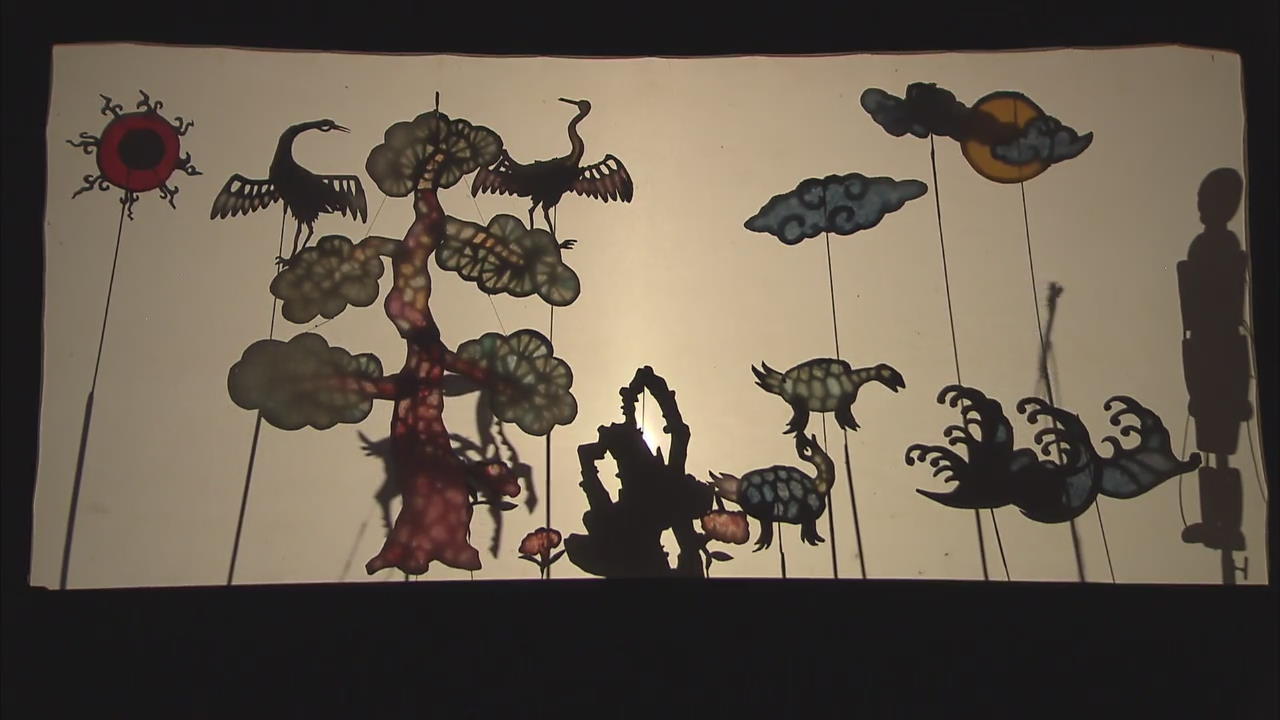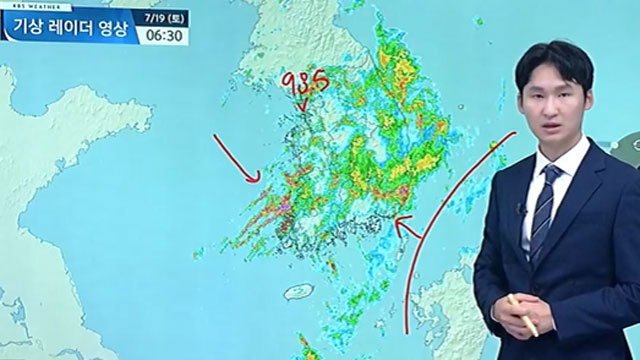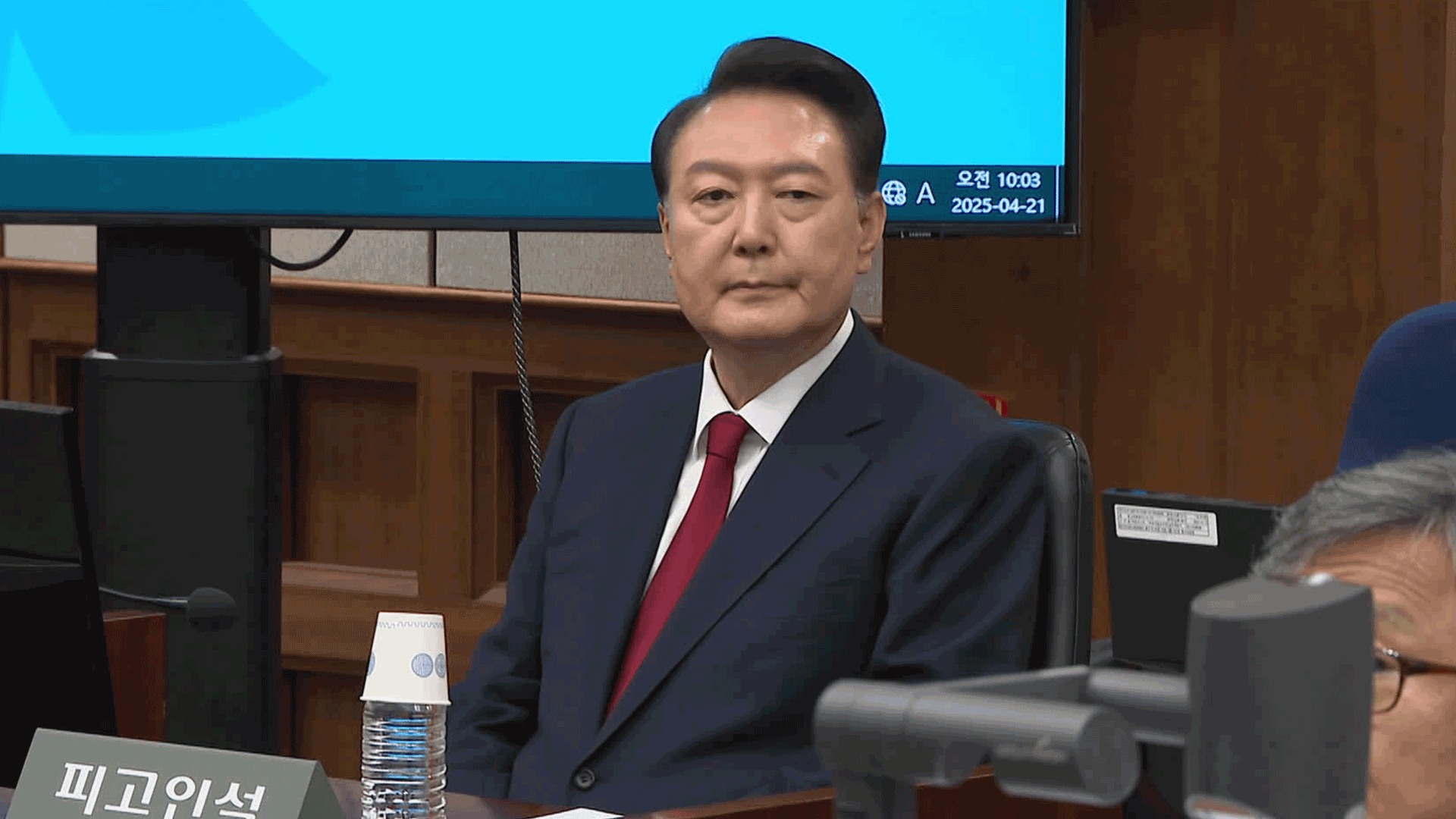Buddha's Birthday
입력 2018.05.23 (15:17)
수정 2018.05.23 (15:34)
읽어주기 기능은 크롬기반의
브라우저에서만 사용하실 수 있습니다.
[Anchor Lead]
On Tuesday, Korea celebrated Buddha's birthday. A traditional Buddhist shadow play that originated in the Goryeo period was staged to mark the event. We take you now to get a glimpse of the show.
[Pkg]
The sun, the moon, the turtle and the deer... Even creatures that are regarded to be immortal eventually disappear someday. The millennial dragon wins the power struggle against the carp, but also disappears. This is a traditional shadow play called "manseokjung nori" about the Buddhist teaching that nothing in this world lasts forever. The one-hour non-verbal show is only performed with shadows held by five puppeteers behind the curtain. In ancient times, accessories made with traditional paper "hanji" and wooden puppets were the only tools for conveying Buddhist teachings to ordinary people, many of whom were illiterate.
[Soundbite] Lee Jong-jin (Association for Preservation of Manseokjung Nori) : "This motion of hitting one's chest and head shows the character realizing how foolish it is."
The play originated in the Goryeo period but disappeared during Japanese colonization of Korea before it was restored again recently. Wisdom conveyed by the traditional Buddhist shadow play continues to strike a chord with audiences to this day.
On Tuesday, Korea celebrated Buddha's birthday. A traditional Buddhist shadow play that originated in the Goryeo period was staged to mark the event. We take you now to get a glimpse of the show.
[Pkg]
The sun, the moon, the turtle and the deer... Even creatures that are regarded to be immortal eventually disappear someday. The millennial dragon wins the power struggle against the carp, but also disappears. This is a traditional shadow play called "manseokjung nori" about the Buddhist teaching that nothing in this world lasts forever. The one-hour non-verbal show is only performed with shadows held by five puppeteers behind the curtain. In ancient times, accessories made with traditional paper "hanji" and wooden puppets were the only tools for conveying Buddhist teachings to ordinary people, many of whom were illiterate.
[Soundbite] Lee Jong-jin (Association for Preservation of Manseokjung Nori) : "This motion of hitting one's chest and head shows the character realizing how foolish it is."
The play originated in the Goryeo period but disappeared during Japanese colonization of Korea before it was restored again recently. Wisdom conveyed by the traditional Buddhist shadow play continues to strike a chord with audiences to this day.
■ 제보하기
▷ 카카오톡 : 'KBS제보' 검색, 채널 추가
▷ 전화 : 02-781-1234, 4444
▷ 이메일 : kbs1234@kbs.co.kr
▷ 유튜브, 네이버, 카카오에서도 KBS뉴스를 구독해주세요!
- Buddha's Birthday
-
- 입력 2018-05-23 15:16:50
- 수정2018-05-23 15:34:05

[Anchor Lead]
On Tuesday, Korea celebrated Buddha's birthday. A traditional Buddhist shadow play that originated in the Goryeo period was staged to mark the event. We take you now to get a glimpse of the show.
[Pkg]
The sun, the moon, the turtle and the deer... Even creatures that are regarded to be immortal eventually disappear someday. The millennial dragon wins the power struggle against the carp, but also disappears. This is a traditional shadow play called "manseokjung nori" about the Buddhist teaching that nothing in this world lasts forever. The one-hour non-verbal show is only performed with shadows held by five puppeteers behind the curtain. In ancient times, accessories made with traditional paper "hanji" and wooden puppets were the only tools for conveying Buddhist teachings to ordinary people, many of whom were illiterate.
[Soundbite] Lee Jong-jin (Association for Preservation of Manseokjung Nori) : "This motion of hitting one's chest and head shows the character realizing how foolish it is."
The play originated in the Goryeo period but disappeared during Japanese colonization of Korea before it was restored again recently. Wisdom conveyed by the traditional Buddhist shadow play continues to strike a chord with audiences to this day.
On Tuesday, Korea celebrated Buddha's birthday. A traditional Buddhist shadow play that originated in the Goryeo period was staged to mark the event. We take you now to get a glimpse of the show.
[Pkg]
The sun, the moon, the turtle and the deer... Even creatures that are regarded to be immortal eventually disappear someday. The millennial dragon wins the power struggle against the carp, but also disappears. This is a traditional shadow play called "manseokjung nori" about the Buddhist teaching that nothing in this world lasts forever. The one-hour non-verbal show is only performed with shadows held by five puppeteers behind the curtain. In ancient times, accessories made with traditional paper "hanji" and wooden puppets were the only tools for conveying Buddhist teachings to ordinary people, many of whom were illiterate.
[Soundbite] Lee Jong-jin (Association for Preservation of Manseokjung Nori) : "This motion of hitting one's chest and head shows the character realizing how foolish it is."
The play originated in the Goryeo period but disappeared during Japanese colonization of Korea before it was restored again recently. Wisdom conveyed by the traditional Buddhist shadow play continues to strike a chord with audiences to this day.
이 기사가 좋으셨다면
-
좋아요
0
-
응원해요
0
-
후속 원해요
0

















이 기사에 대한 의견을 남겨주세요.